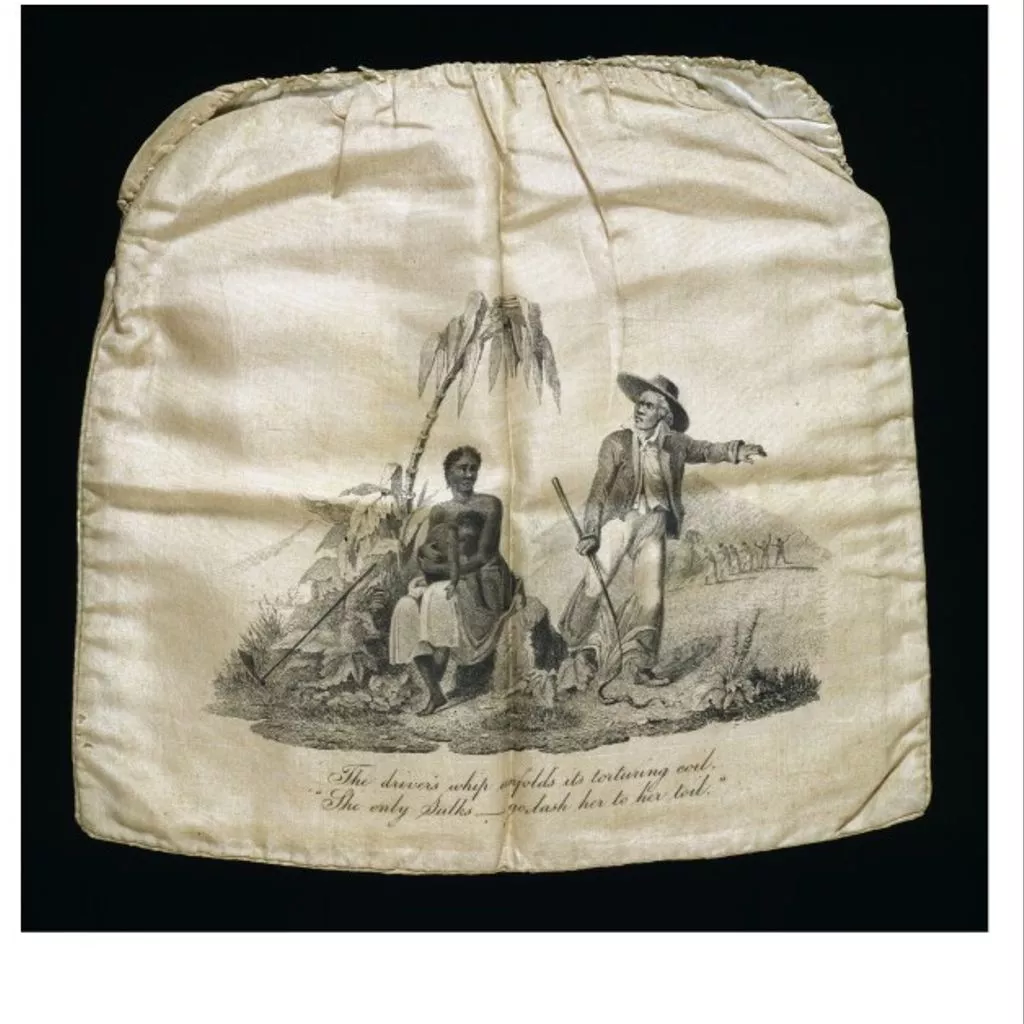Description
White silk satin reticule bag. Printed on the front in black with a scene of a black woman sitting under a tree holding a child in her arms. To the right stands an overseer wearing a broad-brimmed hat, loose shirt and cravat, short jacket, trousers and shoes, and he is carrying a whip. With his left hand he points to the distance where there are black slaves hoeing in a field. Under the image is a short inscription and there is another inscription printed on the back of the bag. The bag is lined with white glazed cotton and has been stitched and shaped to take a frame, though it has no frame.
Printed silk satin reticule bag, designed by Samuel Lines, made by Female Society for Birmingham, Birmingham, ca. 1825
Bags such as this were produced by groups campaigning for the abolition of slavery. The bags were sold with campaigning materials such as pamphlets and newspaper extracts and a card explaining the purpose of the bags. Women were particularly involved in the dissemination of abolitionist material culture, such as bags, pin-cushions, jewellery, prints and pamphlets, particularly in the late 1820s when women became increasingly significant in the movement.
Britain officially ended participation in the slave trade in 1807, though British banks continued to provide credit to foreign traders and the institution of slavery remained intact in the British Empire. Slavery was not abolished in British territories until 1834 (the Emancipation Act was passed in 1833), though slaves were required to serve a further 7 years as apprentices to their masters.
This bag with its associated pamphlets is one of two in the Museum collection that were produced by the Female Society for Birmingham as part of their campaign for the abolition of slavery. The Society was founded in 1825 (originally called the Ladies Society for the Relief of Negro Slaves) in West Bromwich, near Birmingham. The bags were made by women at sewing circles where objects decorated with abolitionist emblems were produced to decorate their homes and for distribution as part of their campaigning activities. Recipients included King George IV, Princess Victoria and other aristocrats and wives of prominent politicians.




